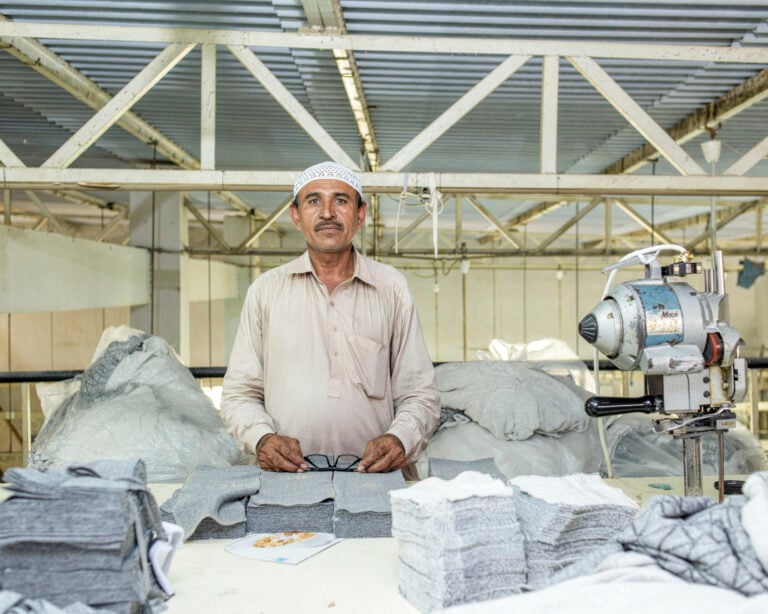
Indian garment workers face harsh working conditions
India’s garment industry has been rapidly growing the last few years. The growth of the garment sector however, did not go hand in hand with an improvement of working conditions for the garment workers. In contrast, the rising daily production targets for garment workers caused increasing and often unpaid overtime work, verbal abuse and harassment by supervisors.
That is the conclusion of a research undertaken by the Indian civil society organization CIVIDEP and published by the Centre for Research on Multinational Corporations (SOMO). The report, Richer Bosses, Poorer Workers: Bangalore’s Garment Industry, describes how garment workers -more than two third of them women – have to struggle to make ends meet while putting up with the harsh daily reality of forced overtime, job insecurity and harassment at the factory work floor.
-
Richer-Bosses-Poorer-Workers (pdf, 289.59 KB)
The garment sector is of major importance to the Indian economy. Not only contributes the industry substantially to India’s export earning, it is estimated that one out of every six households in the country depends on this sector, either directly or indirectly, for its livelihood. Retailers from all over the world also increasingly come to India attracted by low production costs. Among them large brands like Wal-Mart, Tesco, and M&S. Although all major brand companies have set up codes of conduct and audit mechanisms to ensure compliance with basic labour standards, the ground floor reality has not changed for the better and even seems to deteriorate as work pressure is rising due to growing demand.
The study examines working conditions in factories producing for Wal-Mart, Tesco and Marks & Spencer. Some of its findings:
- No living wage. All interviewed workers stated that it is almost impossible to make ends meet with the salary they earn. Many garment workers have taken loans to supplement their income and are now struggling to repay them.
- Work pressure is very high due to rising orders. Hourly targets are set way higher than what a healthy worker of average skill can produce. When they do not complete their work, the workers are verbally abused by their supervisors. The only exception to this is the factory producing for M&S, where workers stated they felt not pressured to complete targets.
- Overtime is often not voluntary as workers are forced to stay longer to complete targets. The legally set double normal hourly wage for overtime is usually not paid.
- Workers experience great job insecurity. Workers feel the constant threat of being dismissed. Minor mistakes in work, non-completion of targets, reporting late to work even by a few minutes and talking back when shouted at, are all used as ground for dismissal. Furthermore, more than half of the workers interviewed did not sign any kind of contract when they started working for a factory.
- Most workers are not aware of codes of conduct. They do know about audits taking place, but they state that workers are picked out and instructed as to what to say by the management.
- In most factories unions do not exist. If workers face any problem they have to turn to the management and reporting a problem almost always works out counterproductive for the worker. If workers are active for a union they are often harassed by supervisors and management.
Only combined action on different levels by different actors will lead to improvements of working conditions for the Indian garment workers. CIVIDEP has therefore drawn up a set of recommendations. Firstly, factory management should allow trade unions in their premises. Secondly, brand companies are urged to see to it that their social audits give a true picture of the ground reality. Thirdly, consumers should pressure international brands to comply with labour standards within their supply chain. And lastly, Indian labour legislation should be changed as to ensure decent working conditions for all workers.
Related news
-

-
Posted in category:Publication

-
Indecent work and hidden supply chains Published on:
 Martje TheuwsPosted in category:Publication
Martje TheuwsPosted in category:Publication Martje Theuws
Martje Theuws


